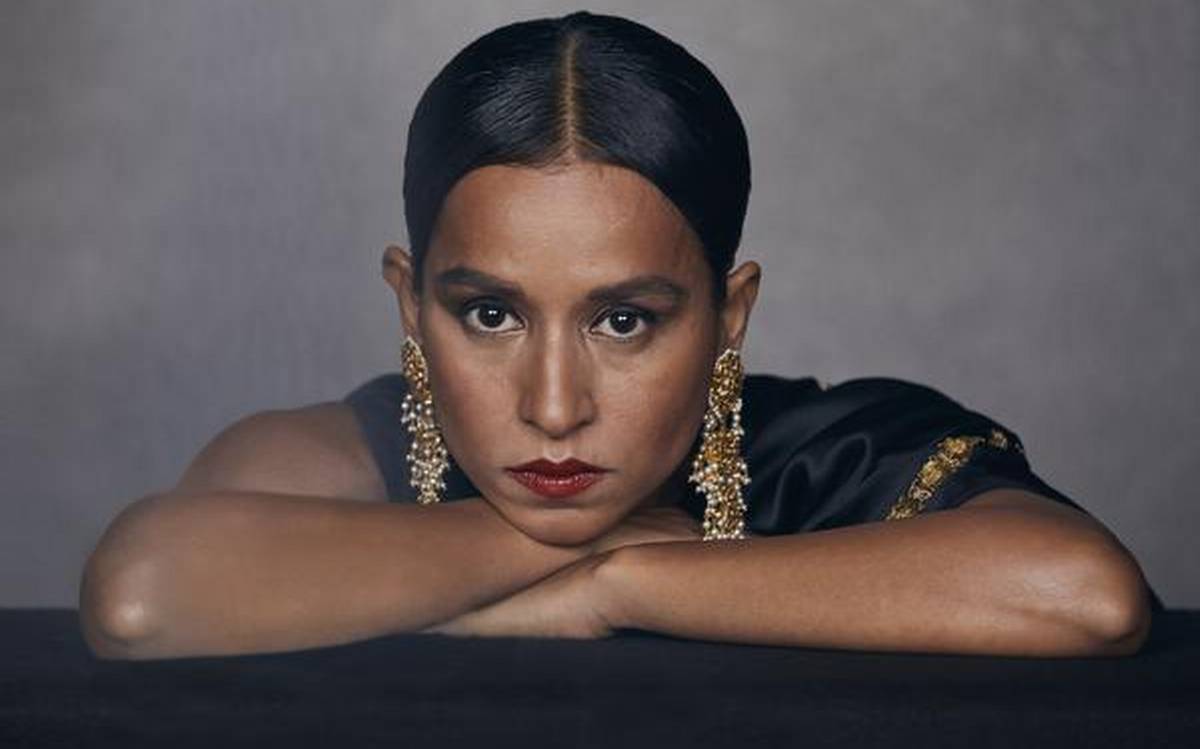Entrepreneur & Philanthropist Harsha Mukherjee Was Once Turned Down By Investors For Being A Woman
- IWB Post
- August 19, 2019

An entrepreneur with principles, a philanthropist with a purpose, and a speaker who is hellbent on bringing revolutionary changes.
Harsha Mukherjee is the Founder & Managing Director of International Institute of Corporate Social Responsibility (IICSR). During her journey in the development sector, she recognized the essence of CSR and guided various private and public sector companies in developing their CSR strategy.
Harsha helps industries collaborate, discuss and conceive progressive strategies to overcome challenges and cast a generative impact. In this interview, she sheds light on the concept of Corporate Social Responsibility and Individual Social Responsibility. Excerpts:
Harsha, you are a social entrepreneur, an active speaker and a humanitarian, do tell us more about how you started your career.
During the final semester of my MBA, I asked myself, what is the one thing I would see myself doing forever – professionally. Since I’ve been an entrepreneur before, it was natural that I would like to continue in that space. Earlier, my experience as an entrepreneur was in the textile industry and that too in the US, which was a very profitable business. Though I was happy in that space, I wanted to associate myself with something which was meaningful in a broader perspective. And that’s where I found my calling to venture into the social entrepreneurship environment.
You identified the significance of CSR at a very early stage of your career. From then until now, how do you think the situation has changed and evolved?
When I started working in the space of CSR, it was not a law. Companies would undertake CSR activities more from a corporate philanthropy point of view. From then until now, I feel a significant shift that has occurred is mandating CSR as part of corporate governance. Over the period of time, it has become a law, so now more seriousness and structure has been introduced in the process of conducting CSR activities. Despite coming a long way, CSR is still widely perceived as corporate philanthropy. But it is a trend that I have been seeing off lately that companies are now working towards sustainability of those CSR activities than just treat it as a random social work activities. Also, a lot of companies have been under scrutiny for alleged embezzlement of funds allotted for CSR. This is why, over the years, the corporate governance has also become stringent, thus bringing a lot of structure in CSR.
Moving on from CSR, you have been associated with a lot of ISR activities too. Do tell us more about this concept.
The stakeholders are becoming more and more cautious about what CSR is. I believe undertaking this is not just the company’s duty but is about the human capital which drives it. So although the company may allot XYZ budget, it might turn out to be meaningless if the people working on this CSR are not driven to bring about some change. So in essence, it is the employee who gets involved in the activity and undertakes it on behalf of the company, and therefore it is first the individual’s social responsibility which reflects, at a larger scale, as the corporate’s social responsibility.
You are part of the UN as a Core Committee Member – Gender Equality. What has it helped you achieve and learn?
Now that women are coming out and empowering themselves, it has been noticed that men, in general, are finding it hard to cope with this paradigm shift in reality. The only solution to this is to sensitize men, educate them to not feel ‘threatened’ (laughs). I think it starts at home – the way the parents treat each other is probably how their kids would in future treat their spouses. So this education needs to begin at home and needs to extend to schools and colleges as well so that by the time they reach the work environment, they would be ready to face and tackle this situation in a much mature manner.
Being among the “Top 10 Indian Women Entrepreneurs”, what do you think about the current scenario, especially in the social entrepreneurship environment?
One of the main challenges that I see in this space is that the angel investments in India are more towards product oriented entrepreneurship. This I feel is creating a dangerous backdrop, where people find it extremely risky to venture into the social space, fearing the hardships of finding and managing the finances. So it is currently a need that in India, being a country driven by the spirit of entrepreneurship, the inclusive nature of angel investors becomes the base of the pyramid.
What are some of the hurdles and obstacles that you have faced in your career as a social entrepreneur?
During the initial stage, when I had to raise funds, I had to struggle a lot. Running from pillar to post, what I have frequently heard from investors is that “I am a woman, it’s better if I don’t venture into something so demanding, considering the fact that I would probably get married in a few years.” I never reacted to such trash talk. Instead, I used it to motivate me to do more. Today I have three successfully running companies under me.
Tell us about your most passionate project till date.
Self-defense training programs and sessions that I have conducted for women, is something that is close to my heart. When I see all the physical trauma that women go through, and are inflicted on them by men, I feel a small sense of contentment that I am doing my part in educating women to stand up for themselves, so that the situations may change in years to come. I do believe that apart from being financially empowered, women also need to be physically and mentally empowered.
Being actively involved in so many initiatives, have you found it difficult to maintain a work-life balance? Is there any specific routine that you follow?
My work is my life, and that is the only routine that I follow, and therefore it is always balanced. If I had to answer a question that what makes a person successful – I would say hard work and passion. Immersing myself in work is what gives me satisfaction in life. Since I am so passionate about the work I do, and content in it, I don’t find it necessary to resort to taking a break of any sorts.
Lastly, do share some advice for the readers who I am sure would be fascinated with your passionate work.
Get married to whatever task you are doing. Instill a sense of oneness with your work so that the passion towards it will always keep you motivated. Never give up on working for what you believe in.
- 0
- 0













